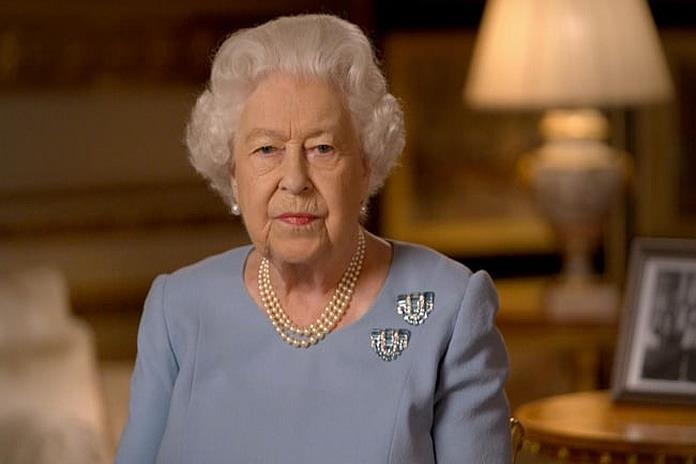
The Queen Has Died: Long Live Her Legacy
By Sir Ronald Sanders
The announcement of the death of Elizabeth II, Sovereign Queen of several realms, including seven in the Caribbean, plunged the world into deep sadness.
She was not Queen in the far-flung countries in which millions of people now mourn her death, but every person, who shed a tear or felt a tightening in their throat, was painfully aware that a great figure has passed from our lives.
There will never be another like her.
She has been the longest reigning monarch in Britain and all of her realms that stretch from the Pacific to North America and the Caribbean. She also reigned longer than any other monarch in Europe, Asia, Africa and the Middle East.
But, it is not only the fact of her longevity that caused the spontaneous outpouring of sadness and regret at her death; it was more so the quality of her reign.
She was dedicated to her duty and obligations and everyone, everywhere knew it. That commitment to executing her responsibilities, whatever personal strain it caused, was no better exemplified than when, just two days before her death and while she knew that her end was near, she received Liz Truss and appointed her as Britain's 15th prime minister. Quite remarkably, she did so with a radiant smile on her face.
Every British prime minister, every prime minister of her realms valued their engagements with the Queen. She possessed a depth of wisdom, born from the breadth of her experience and knowledge.
The value, reposed in her by the leaders of her realms, was shared by Heads of State and Governments of Commonwealth countries. She became head of the Commonwealth at the instant that she inherited the monarchy of Britain, thrust on her by her father's death in 1952.
It is a role she has fulfilled for 70 of the modern Commonwealth's 73 years. She had made a commitment to the Commonwealth on her 21st birthday when she declared:“If we all go forward together with an unwavering faith, a high courage, and a quiet heart, we shall be able to make of this ancient commonwealth, which we all love so dearly, an even grander thing – more free, more prosperous, more happy and a more powerful influence for good in the world”.
She lived-up to that declaration. Her devotion to the Commonwealth and its affairs, even to the point of defying the advice of British prime ministers in support of wider Commonwealth positions, is well-known and greatly respected, especially in the struggle against apartheid in South Africa.
During her reign, she undertook more than 200 visits to Commonwealth countries and visited every country of the Commonwealth (with the exception of Cameroon, which joined in 1995, Rwanda which joined in 2009, and Togo and Gabon which joined this year) as well as making many repeat visits. She brought star quality to the Commonwealth and, by her association, gave it global recognition and regard.
The headship of the Commonwealth has no functional role, but it is very doubtful that the modern Commonwealth would have survived had it not been for her personal stewardship. She was the glue that kept the group in existence, in her long reign. She made the Commonwealth a personal passion and advocated for it strongly.
In the Commonwealth Caribbean, several countries became Republics; among them Barbados, Dominica, Guyana and Trinidad and Tobago. Others, such as Jamaica and St Vincent and the Grenadines, have indicated that they too wish to become Republics. But, at all times, the governments and peoples of these nations expressed their continuing admiration and respect for Elizabeth II. Their wish to become Republics was no disrespect to her, or any diminution of their high regard for her worth. It was simply a practicality. There is as much widespread mourning and sense of loss in the Republics of the Commonwealth as there is in Britain.
No one who encountered the Queen would not have been touched by her humanity, and the sense of personal concern that she showed. I recall many personal instances – her worry that I might catch my death of cold when I turned up for a wreath-laying ceremony at the Cenotaph in London without an overcoat on a cold and rainy November day; her insistence, at Windsor Castle that she show me a photograph of a beach in Antigua, the only beach on which she sun-bathed during her reign; and her warm welcome when I returned to London a second time as High Commissioner. Above all else was her interest in the country; her questions about the effects of Hurricanes and how people were coping.
Elizabeth II sat on a throne – a heavy weight on her small frame, but she was a colossal human being. Britain and the Commonwealth has lost a treasure that cannot be replaced.
It is right that we should all mourn her passing, and unashamedly shed a tear, joining her family in their deep loss, for it is our collective loss too.
However, she has left us a legacy of committed service that enriched all our lives, and an example of dedication to duty that we can never forget.
The Queen has died. We must preserve her glorious memory.

Legal Disclaimer:
MENAFN provides the
information “as is” without warranty of any kind. We do not accept
any responsibility or liability for the accuracy, content, images,
videos, licenses, completeness, legality, or reliability of the information
contained in this article. If you have any complaints or copyright
issues related to this article, kindly contact the provider above.


















Comments
No comment